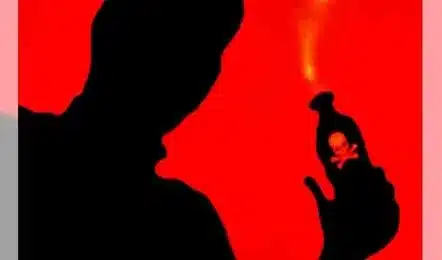
“Since the case rested on circumstantial evidence, the circumstances put forth should be consistent only with the hypothesis of the guilt of the accused,’ the Court observed.
The Calcutta High Court, on 11th January 2024, observed that the ’Suspicion’, upon an alleged, be any high, cannot take place of the proof of guilt. The statement was recently made during the acquittal of two persons, convicted by the trial court, in an acid-attack case (Jiten Barman v. The State of West Bengal)
The conviction of those two men by the trial court was repealed by a Bench of Justices, Joymalya Bagchi, and Ajay Kumar Gupta, as they observed the facts of the case.

The Court stated that “On the basis of suspicious circumstances, the appellant cannot be held guilty. Suspicion, howsoever high, cannot take the place of proof of guilt. Accordingly, the appellant is entitled to the benefit of the doubt and ought to be acquitted.”
The history of the case dates back to 2013, when two girls, aged about 18 years and 5 years old, who were the sister and daughter of the informant respectively, were the victims of an acid attack in their house at night.
Two alleged men, who were said to be teasing the informant’s sister earlier, were accused of this crime. The facts of the case state that the sister of the informant had rejected the proposal from the accused. As a consequence of, and aggression of the accused, he allegedly threatened the victim that he would make her condition such that no one else would marry her and that human beings would be frightened by seeing her face. These statements were made by the informant.

The Court had been told that post the threats, the parents of the victim stopped her from going to school, or anywhere outside, and made arrangements to get her married. The informant claimed that the accused had thrown acid on her sister and daughter, as he came to know about her betrothal.
The trial court’s conviction in this matter was challenged by one of the accused before the Calcutta High Court, who pleaded innocence in the case, contending that he was falsely implicated. The appellant also contended stating that none of the witnesses could provide sufficient evidence of how the accused entered the house at night when the acid attack took place. The appellant submitted that there were no eyewitnesses and the trial court had convicted them solely based on surmises and suspicion.
Calcutta High Court also observed that “Even the family members of victims who were present at the place of occurrence did not support the case of the prosecution.”
Since the case rested on circumstantial evidence, the circumstances put forth should be consistent only with the hypothesis of the guilt of the accused, which is what the court observed.
In this case, contradictory versions of the incident were presented along with the hostile witnesses that pointed out the flaws in the conviction.
The court pointed out that the suspicions of the prosecution in this matter cannot amount to declaring the accused as ‘guilty.’

Advocate Amitabha Karmakar appeared for the appellant, and the State was represented by Advocates Parthapratim Das and Manasi Roy.
The court concluded, “I am fully convinced with the arguments of the learned Advocate though the victims suffered acid burn injuries who is the actual culprit is not brought on record by the prosecution.”
The Court also stated that “How appellant and his friend entered the room at night where the victims were sleeping and how they threw acid on them is not clear from the prosecution witnesses. Their suspicion or belief do not constitute proof.”
Thus, the High Court acquitted the appellant. As a result, the acquittal was also extended by the court to the other accused who had not challenged the trial court order.
The Court further stated that “he stands on the same footing with the appellant. Hence, in the interest of justice, he ought to be extended the same relief and acquitted of the charge leveled against him in view of the law declared in Sahadevan & Anr. Vs. State of Tamil Nadu and Md. Sajjad Vs. State of West Bengal.”













